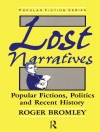The anthology ‘Life and Legacy of Nathaniel Hawthorne’ invites readers into a rich tapestry of literary exploration, anchored by the profound and multifaceted works influenced by or engaging with the legacy of Nathaniel Hawthorne. This collection spans a diverse array of styles, from the introspective and symbolic narratives that echo Hawthorne’s enchantment with the psychological and moral interiors of his characters, to essays and reflections that delve into the historical and cultural contexts of his oeuvre. The anthology highlights both renowned and understudied pieces, crafting a comprehensive portrait of the varied dialogues ignited by Hawthorne’s monumental impact on American literature. Curated by a distinguished set of authors, including Herman Melville and Julian Hawthorne, this volume brings together voices that intricately weave the threads of American Romanticism through their diverse backgrounds and literary experiences. Melville’s profound narrative complexity complements Julian Hawthorne’s intimate perspective on his father’s enduring influence. Accompanied by critical essays from F. P. Stearns and G. P. Lathrop, the collection captures a spectrum of insights that both illuminate and expand upon the historical and thematic nuances found within Hawthorne’s work. Through these varied contributions, readers gain a more rounded comprehension of the broader American literary movements of the 19th century. This anthology is an invaluable resource for readers seeking to immerse themselves in a rich dialogue of literary styles and ideas pivotal to understanding Nathaniel Hawthorne’s enduring legacy. The collection stands as a testament to the multiplicity of interpretations surrounding Hawthorne’s work, fostering a deeper appreciation of the cultural and philosophical inquiries that his stories provoke. It presents a unique opportunity to explore interconnected themes and perspectives, offering both aficionados of Hawthorne and newcomers an enlightening journey through the artistic, historical, and ethical dimensions of his studies.
A propos de l’auteur
Herman Melville (1819–1891), a towering figure in American literature, is best known for his masterpiece ‘Moby-Dick, ‘ a complex novel that reflects his deep engagement with philosophical, social, and existential questions. Born in New York City, Melville’s early experiences at sea, including voyages to the South Pacific, profoundly shaped his worldview and literary imagination. Melville’s career as a writer spans several genres, from sea adventures like ‘Typee’ (1846) and ‘Omoo’ (1847), to allegorical novels such as ‘Billy Budd, Sailor, ‘ published posthumously in 1924. His narrative style is notable for its rich symbolism, intricate character development, and exploration of the human condition. Although ‘Life and Legacy of Nathaniel Hawthorne’ is not among Melville’s recognized works, his relationship with Hawthorne was significant; the two authors were contemporaries and corresponded, with Hawthorne’s work influencing Melville during the writing of ‘Moby-Dick.’ Melville’s later works, such as ‘Bartleby, the Scrivener’ (1853) and ‘The Confidence-Man’ (1857), exhibit a more somber and reflective tone, mirroring his declining popularity during his lifetime. Today, however, Melville is celebrated for his contribution to American letters and his innovative literary techniques. Scholars often emphasize his rich intertextuality, use of ambiguity, and societal critique, which have cemented his legacy as a pivotal figure in the canon of American literature.












